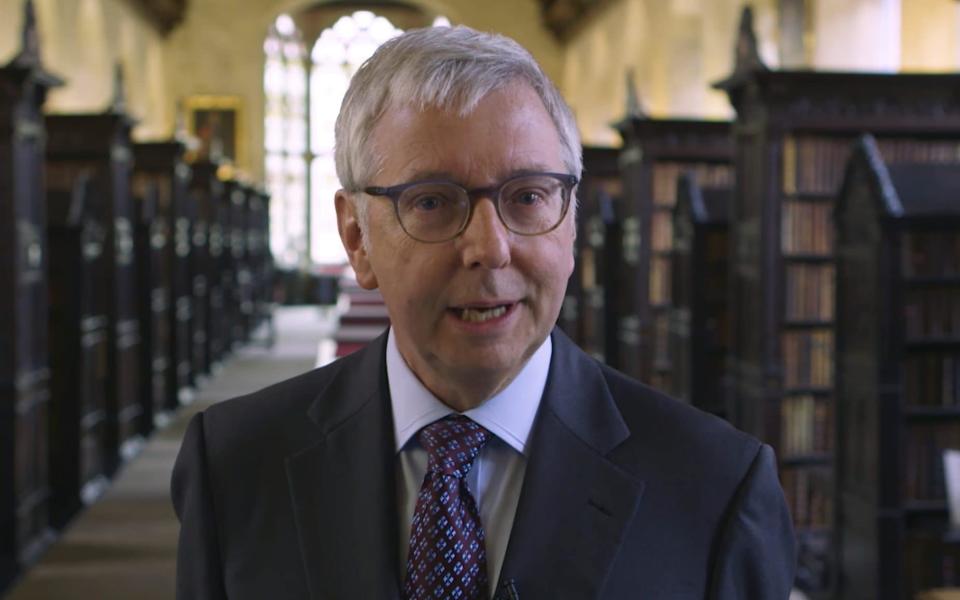US professor of gender stereotypes is Cambridge’s new vice-chancellor

- Oops!Something went wrong.Please try again later.
The University of Cambridge has appointed a US professor of gender stereotypes as its new vice-chancellor.
Deborah Prentice, provost of Princeton University, will become the first person from the US to fill the top academic and administrative role at Cambridge as it attempts to navigate away from controversies over free speech and culture wars.
Prof Prentice has been praised by colleagues for her “wisdom, skill, collegiality, and scholarly values”, but has been faced with free-speech challenges in the US, following the dismissal of a Princeton professor.
Cambridge’s outgoing vice-chancellor, Canadian lawyer Stephen Toope, is leaving his seven-year post two years early, which he said is due to the toll the pandemic had taken on his family.
Prof Prentice has spent her entire 34-year academic career at Princeton, most notably as provost for the last five years, dean of the faculty between 2014 and 2017 and chair of the department of psychology for 12 years before.
Insisting that she is an academic “first, last and always”, Prof Prentice is described by Princeton as “a psychologist who studies social norms and whose research has focused on gender stereotypes, intimate partner violence and excessive alcohol use, among other areas”.
Commended for diversity drive
She has also been commended for her diversity drive at the Ivy League university, which involved putting measures in place to combat what the university called “systemic racism”.
As provost, she was drawn into controversy after Joshua Katz, a classics professor, was fired earlier this year.
The university said that he had not been fully honest and cooperative with an investigation into his sexual relationship with an undergraduate student 15 years ago.
However, allies of Prof Katz are concerned that he has been targeted for his views, after he criticised anti-racist proposals by Princeton faculty, students and staff in an online journal.
“There are dozens of proposals, [which], if implemented, would lead to civil war on campus and erode even further public confidence in how elite institutions of higher education operate,” he wrote, citing the example of: “Reward the invisible work done by faculty of colour with course relief and summer salary.”
Eight professors wrote to Prof Prentice and others in Prof Katz’s support. Princeton insists his dismissal was not to do with free speech, but rather his “egregious violations of university policy” to “conceal a relationship he knew was prohibited by university rules”.

Prof Prentice replaces Prof Toope, whose own tenure was not without difficulty.
In May, Prof Toope faced a revolt over the university’s “change the culture” scheme, a website for logging the inappropriate behaviour of students or staff, which included a list of “micro-aggressions” such as raising an eyebrow, giving backhanded compliments and referring to a woman as a girl.
The website was removed after it was revealed by The Telegraph, and Prof Toope wrote to the university’s entire staff to explain that it had been published “prematurely and without full scrutiny”.
Princeton President Christopher L Eisgruber was effusive in his praise of Prof Prentice, saying: “Debbie has played a critical role in many aspects of university life, including guiding it through the pandemic, redesigning our undergraduate financial aid and graduate stipend packages, strengthening the university’s academic quality, and making our community more diverse and inclusive.”
She was one of a number of applicants from institutions from around the world and was interviewed last week as the shortlist was whittled down to just three.
After the announcement, Prof Prentice said: “It is a huge honour to be nominated to lead such a renowned institution. I welcome the challenge of helping Cambridge write the next chapter of its long and proud history. Higher education around the world faces many challenges but I firmly believe there are also great opportunities to demonstrate how our leading universities can together harness their expertise to solve global problems. I hope that I can play some part in leading that dialogue.”

